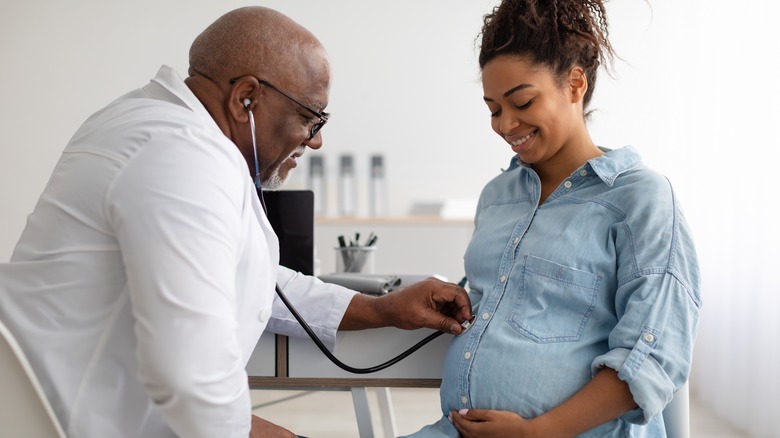Can Pregnancy Trigger A Mental Illness?
Pregnancy can be a wonderful time, but it can also be a time of great stress and anxiety. For some women, these feelings may be so strong that they develop a mental illness. Many women experience some form of anxiety or depression during pregnancy. For some women, these feelings are so strong that they can develop a mental illness or trigger a preexisting mental illness (via Better Health Channel). If you are feeling overwhelmed, anxious, or depressed during pregnancy, it is important to seek help from your doctor or a mental health professional. There are many effective treatments for mental illness, and you don't have to suffer in silence.
Postpartum depression is another health concern that many women face. But despite how common it is, there is still a lot of stigma attached to it, which means many women don't seek help (via Mayo Clinic). There are a number of things that can trigger postpartum depression, including changes in hormones, sleep deprivation, and the stress of caring for a new baby. This is a serious condition that goes further than the normal "baby blues" that many new moms feel. If you are experiencing feelings of sadness, anger, depression, or hopelessness after giving birth, talk to your doctor about what to do.
Health changes that may happen during pregnancy
Pregnancy doesn't just affect your mental health. While many women will experience healthy pregnancies, many others go through a variety of physical changes ranging from annoying to severe. According to Healthline, some of the most common pregnancy complications include high blood pressure, gestational diabetes, and preeclampsia. High blood pressure is a common complication in pregnancy, and can be caused by the extra fluid in your body, the growing uterus putting pressure on your blood vessels, or hormonal changes. If left untreated, high blood pressure can lead to preeclampsia (a serious condition characterized by high blood pressure and protein in the urine).
Gestational diabetes only occurs during pregnancy, and is usually diagnosed around week 24. It happens when your body can't produce enough insulin to deal with the extra glucose in your blood. Gestational diabetes can usually be controlled with diet and exercise, but in some cases insulin injections may be necessary. Other health conditions you may experience during pregnancy include anemia, UTIs, and infections (via CDC).

